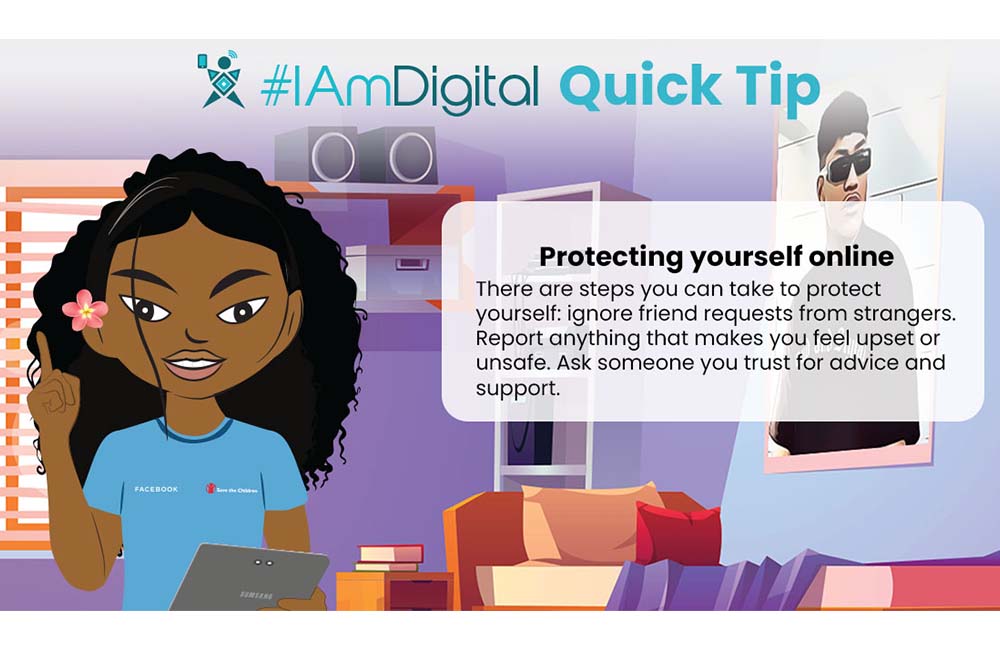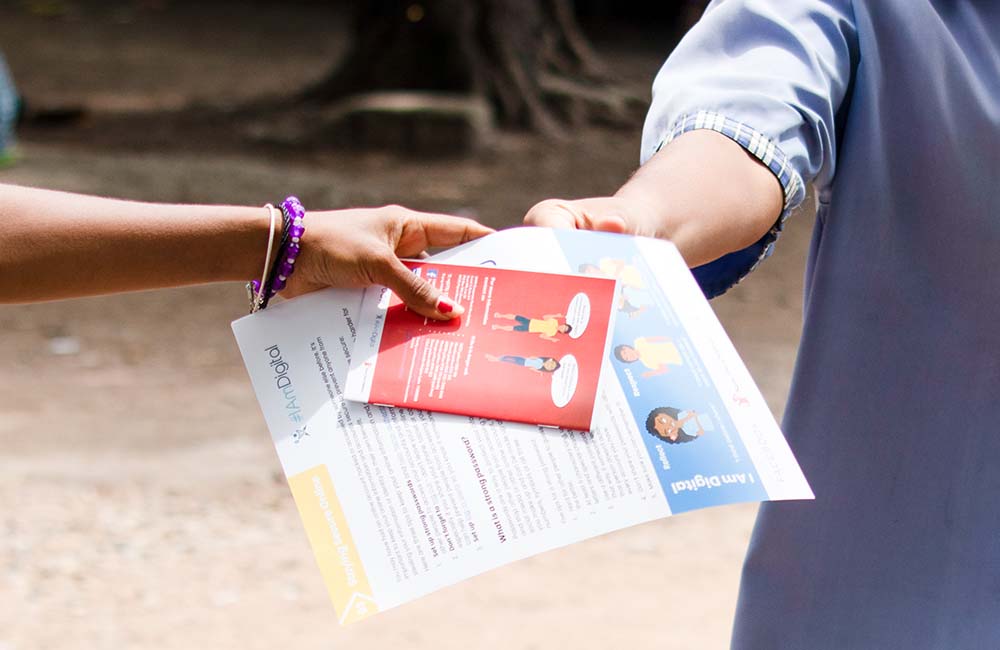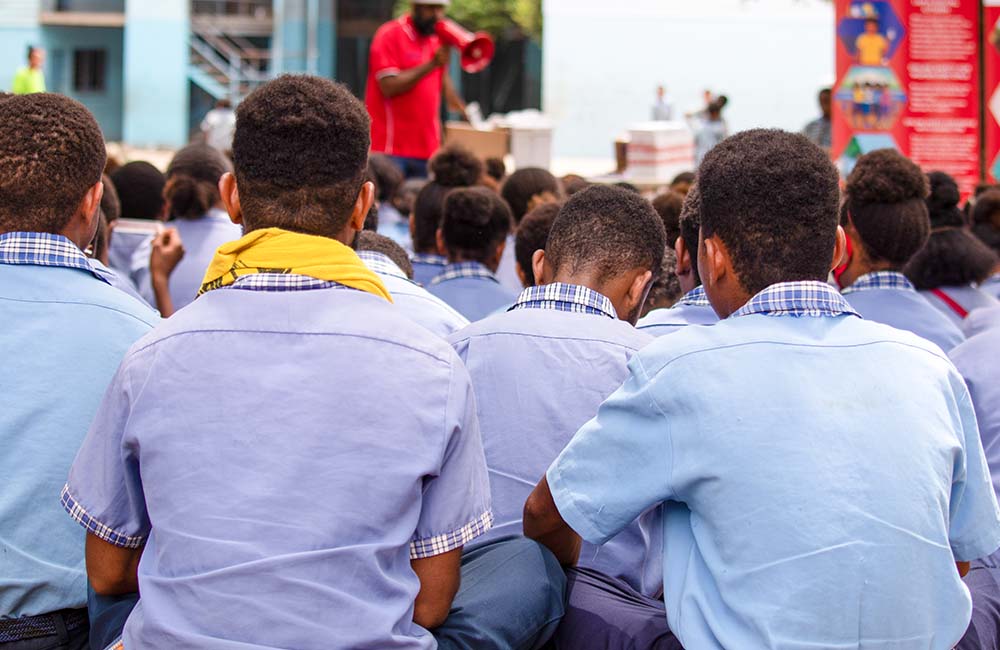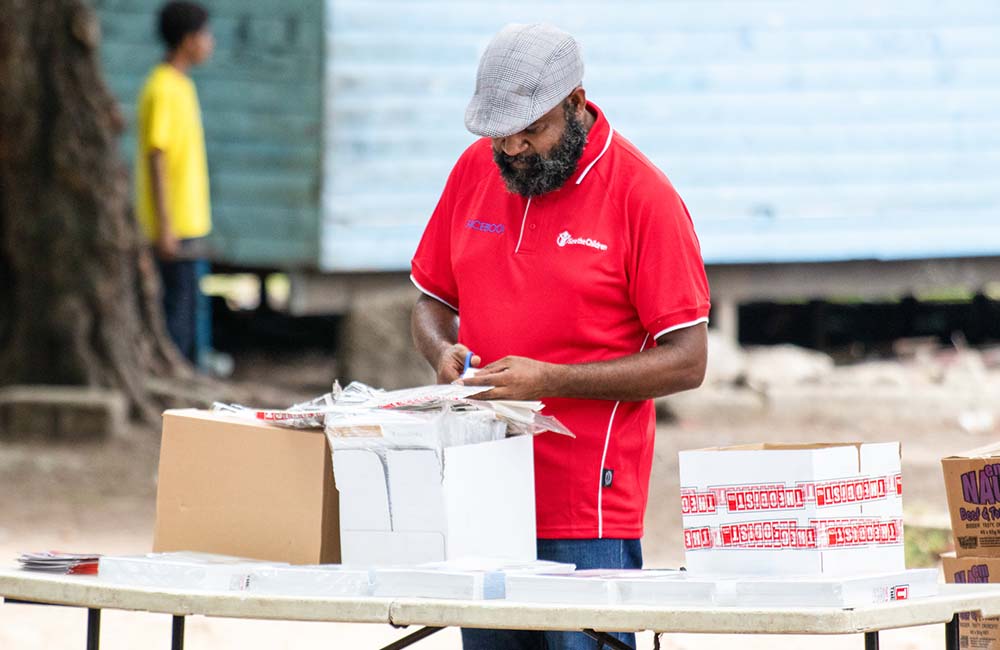How we’re helping children navigate their online worlds
After two years of rolling lockdowns, the internet is more important than ever in helping us stay connected with the people we love.
It’s no different in the Pacific, where scores of new subscribers are logging onto social media daily to message friends and family. However, access to the internet came late for these remote island nations, and many people don’t know how to protect their privacy and stay out of harm’s way online.
Children are at particular risk. Spending more time on screens can leave children vulnerable to online sexual exploitation and grooming from predators. Increased time online may also expose children to potentially harmful content, as well as increasing the risk of cyberbullying amongst peers.
In response, Save the Children has partnered with Meta to deliver a digital literacy and safety initiative in the Pacific. The ‘I am Digital’ campaign, first launched in February 2021, has now expanded to seven remote island nations – PNG, Tonga, Fiji, Samoa, Solomon Islands, Kiribati and Vanuatu.

With the support of Meta, the I Am Digital campaign is sharing tips
to help Pasifika young people* stay safe online.
Empowering children with e-safety skills
With the help of a group of PNG young people, the campaign has developed learning materials to help Pasifika people* stay safe on the internet. The tip sheets, jingles and videos are shared online, in-person and via the radio. They help empower children and their parents to have safer, more positive experiences online and safeguard themselves against abuse, bullying and exploitation.
Save the Children’s Child Protection Coordinator in PNG, Owen Suanga, has been visiting local schools to make sure the materials get into the hands of every last child. Owen knows his face-to-face work is just as important as the online materials he shares via the ‘I am Digital’ Facebook page.

Children share online safety materials with each other at a school in PNG.
Photo: Lillian Keneqa/Save the Children PNG
He says,
“when we visited the schools and asked if the students have a Facebook account 75-80% raised their hands...” However, most students said data is too expensive in PNG to do more than login to accept friend requests and send messages to their peers.
“Most of them had not gone onto Facebook to see our materials because of the high cost of data,” Owen states.
The Child Protection Coordinator says the response to the campaign has been overwhelmingly positive, especially from students.
“When we started distributing materials they got really excited – to know about online bullying, how to protect themselves online, how to block people you don’t like, where to report perpetrators, tips on not accepting friend requests,” he says.
 Children learn how to protect their privacy and avoid bullying and harassment online at a school in PNG.
Children learn how to protect their privacy and avoid bullying and harassment online at a school in PNG.
Photo: Lillian Keneqa/Save the Children PNGSo much done, so much more to do
Mia Garlick, Meta’s Regional Director for Australia, New Zealand and the Pacific Islands, says the progress has been impressive, but the scale of the challenge remains huge. “We have seen such great reach and engagement through I Am Digital and it’s excellent to see the campaign have impact both online and offline,” she says.
“With more people coming online across the Pacific, our continued partnership with Save the Children is so important to building the skills of young people, parents and educators, across the areas of digital literacy, online safety and critical thinking,” Mia adds.
Based on the feedback and suggestions of children and young people, the project is now moving into phase three. Save the Children is working with Meta to expand on the e-safety materials already developed and reach more young people across the Pacific.

Save the Children’s Child Protection Coordinator, Owen Suanga, prepares tip sheets
for students about staying safe online.
Photo: Lillian Keneqa/Save the Children PNG
Owen is excited to continue supporting young people to navigate their online worlds. When asked what he would tell a young person wanting to make a Facebook account, Owen had this advice: “My tip would be to know that being online is like you have a digital footprint.”
He added, “whatever you say, whatever you do, will come back to you. You need to respect others so they in turn respect you too.”
*Pacific Islander people.